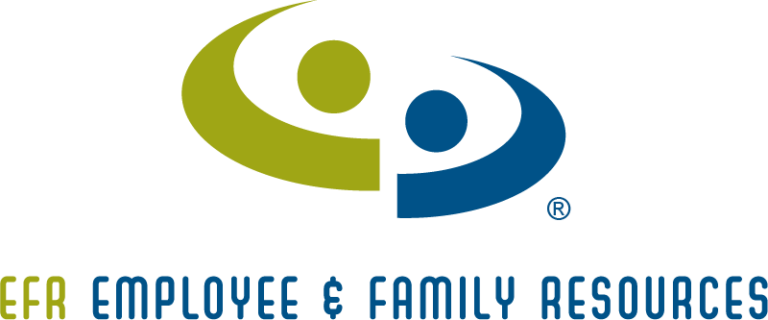It’s no secret- American culture prides itself on productivity. But a trend of putting in more hours and taking less time off has workers less productive and more burned out than ever. In many ways, the busyness of schedules has become a badge of honor. A packed calendar and a mile-long to-do list seem to signal that meaningful work is underway, and the person behind the work is critical to the cause, hence the hectic schedule.
The No-Vacation Nation
American society is so vacation-averse that the Center for Economic and Policy Research has even dubbed the US “No Vacation Nation.” When Americans finally give themselves a break, it is only a pause before turning back to the grindstone. Recent research found 55% of American workers did not use all of their paid vacation time! Even when they are away from work, employees don’t unplug, with 41% of people checking in at work while off the clock.
Taking Time Off Is Essential for Well-Being
While much of the workforce is willing to sacrifice their well-deserved time off in service to their jobs, their sacrifice isn’t doing any favors. Surrendering vacation days doesn’t benefit your employer; you’re actually less productive and creative. It doesn’t improve your health; you become prone to stress, mental health problems, and an increased risk of chronic health problems. Rest isn’t a luxury to be earned. It’s a necessary part of caring for your health and well-being.
Take Time Off for Your Health
Your health suffers without sufficient leisure time, so don’t wait until you’re at the brink of burnout before taking a break! The constant pressure to always be available and on-call compounds stress, raising cortisol and adrenaline levels – also known as the fight or flight response. This evolutionary trait enables you to respond to immediate, short-term threats. But when heightened stress levels become the norm, a slew of health problems like high cholesterol, high blood pressure (hypertension), and high blood sugar can follow.
Chronic stress is associated with an increased risk of heart disease, stroke, and type 2 diabetes. Research by WHO found working 55+ hours/week increases your risk of stroke by 35% and increases your risk of dying from heart disease by 17%, compared to a 35-40 hour workweek. Exposure to chronic stress can alter your brain structure, causing memory problems and increasing your likelihood of developing mental illness. Your brain can’t repair itself if it’s always under pressure, so when your job becomes demanding, or workplace friction starts spilling into your off-hours, take a step back from the stress by giving yourself a break!
Take Time Off to Get Out of Your Comfort Zone
When you schedule time off, consider traveling further than your couch. A study conducted by the APA found vacations help reduce stress by removing people from the environments and activities associated with stress. As the saying goes, “out of sight, out of mind,” you’ll be less tempted to check work emails when you’re away from your regular environment! Leisure activities that bring you close to nature, like camping or hiking, are natural antidotes to stress. Spending two hours each week in nature is linked to increased happiness, well-being, and life satisfaction. A bonus benefit is a complete disconnection from work- you can’t check emails if you don’t have cell phone service! Dive into environmental well-being and discover why nature is a key component to physical and mental well-being with environmental activist Leslie Berckes.
Listen to Related Podcast: Find Your Roots: Exploring Environmental Wellness: Being aware and noticing what is going on in the natural world is one way to enhance overall well-being. Leslie Berckes shares her passion for being a voice for the voiceless through her work with Trees Forever and helps us explore the many ways someone can interact with the natural world to boost physical and emotional well-being.
Take Time Off for Your Creativity and Imagination
Resting improves your capacity to learn. In the age of technology, information, entertainment, and distractions bombard our brains, constantly competing for our attention. Giving your brain downtime without external stimulation, like watching tv or scrolling social media, allows your mind to wander into the imagination. Giving your brain free rein to wander induces a state of mind that is prime for creative problem-solving and new ideas.
Take Time Off for Productivity
By doing less, you can accomplish more. When work hours stack up and burnout looms, your capacity to focus and produce quality work wanes. If a solution is out of sight, forcing your brain to problem solve isn’t the most effective, easy, or pleasant thing to do. Removing yourself from the problem gives your brain a pause and the opportunity to present a solution when it arises instead of fretting over and forcing it. Taking a break and immersing yourself in something unrelated, like showering or going for a walk, stimulates unconscious thought processes. These processes work in the brain’s background and make connections between memories, thoughts, and ideas. Because you’re unaware of these processes, your brain is freed from your conscious redirected focus that can smother creativity. It turns out going for a walk outside can be more productive than working through lunch!
Relaxing is an Investment in Your Health and Well-Being
Doing nothing has negative connotations in our culture, and taking time for leisure can feel irresponsible or wasteful. It’s common to feel guilty for not being productive enough! The distractions and multitasking we’ve become accustomed to as a society fuels a cycle of burnout. Staying on the go rewires the brain and sets our default to busy, making it harder to stop and relax. For many of us, busy is our comfort place because it’s our conditioned default. But relaxing and taking time away from work is like a tune-up for your brain. Equating relaxing with unproductivity is a shortsighted view of a much bigger process. Taking breaks from work improves cognition, mental health, and allows for greater innovation, insights, and ideas with less stress and effort. It’s time to break your busy habit; for your health, happiness, and career. Don’t think of relaxing as “doing nothing”; it’s investing in your health and well-being.





